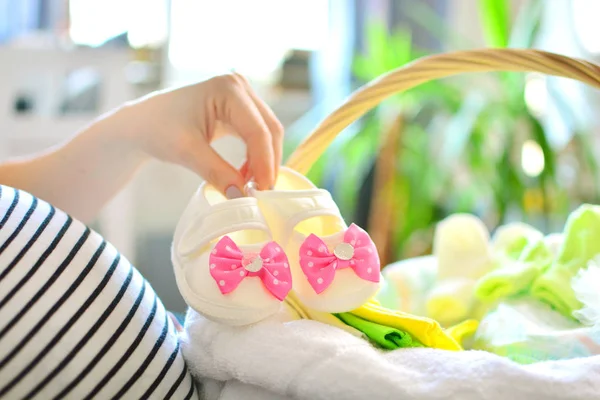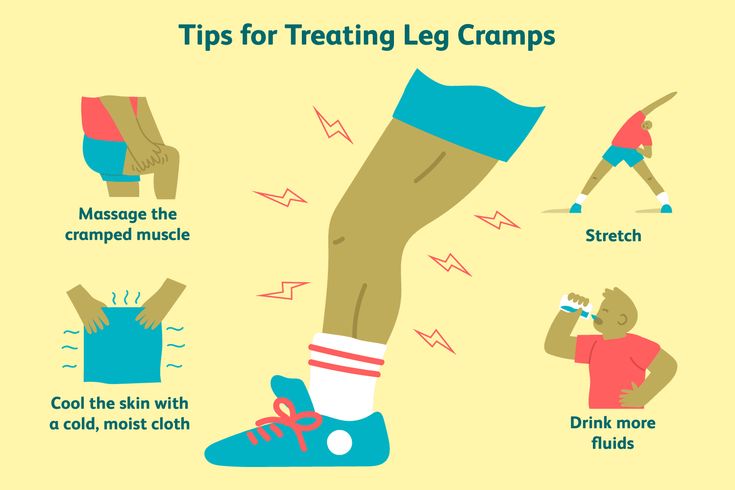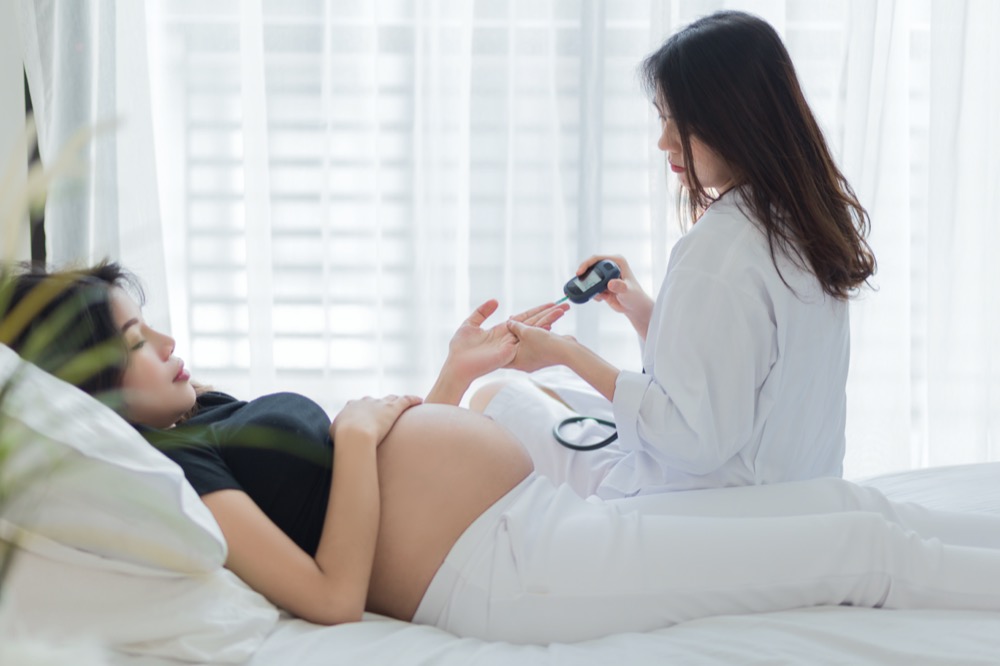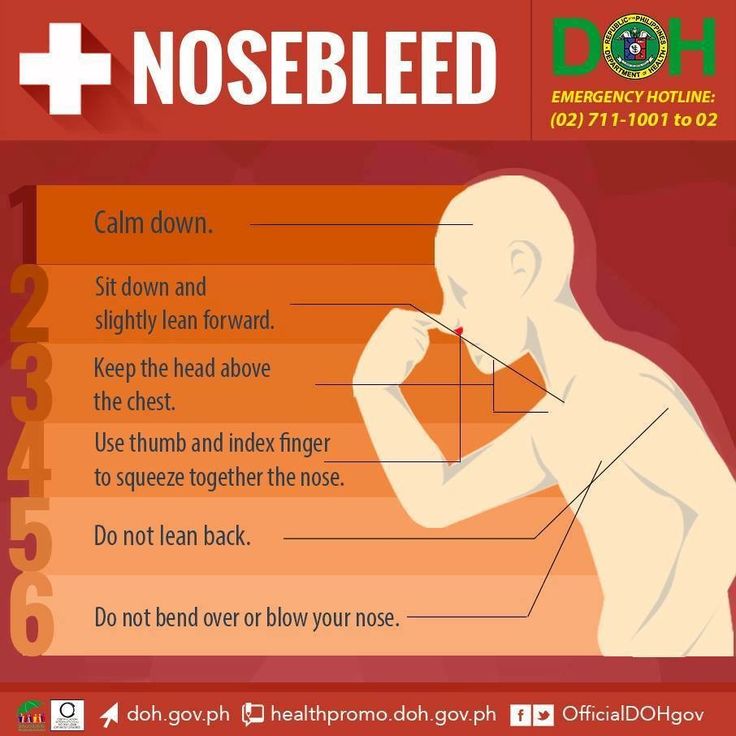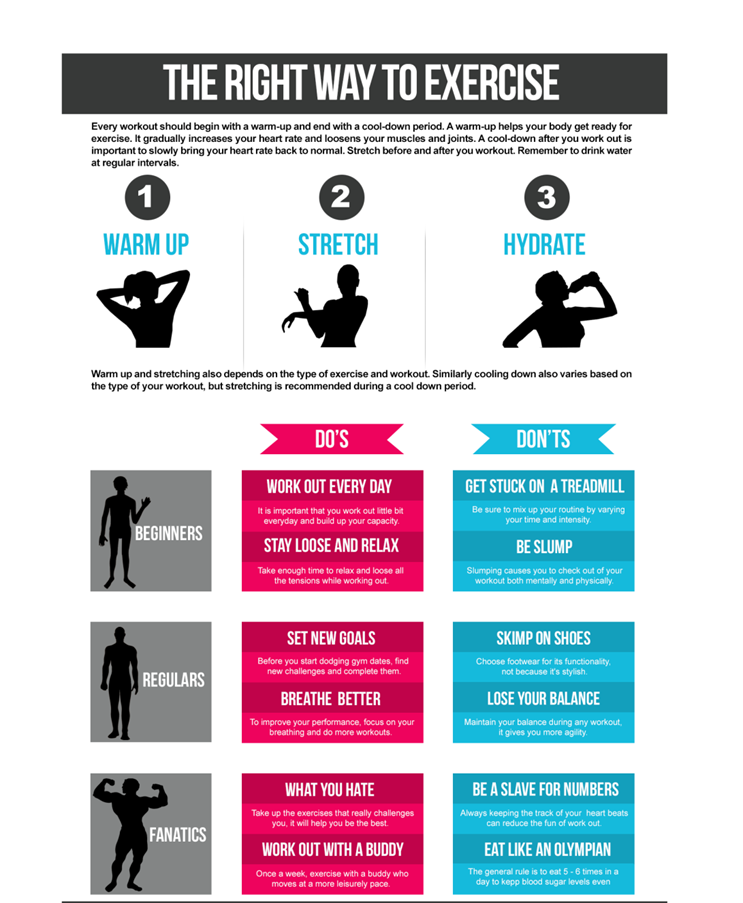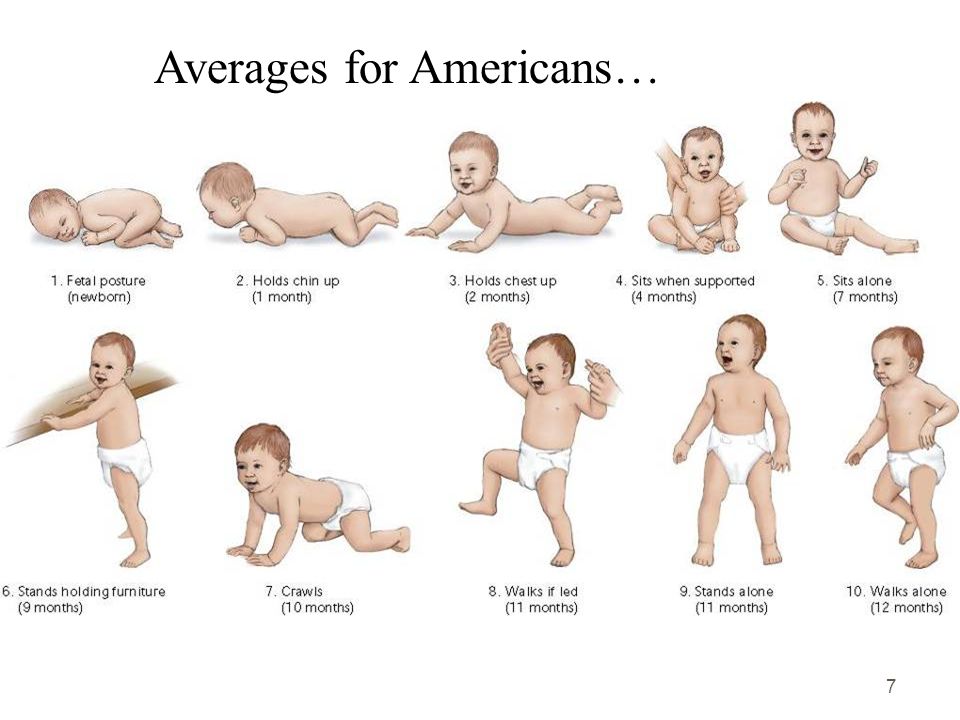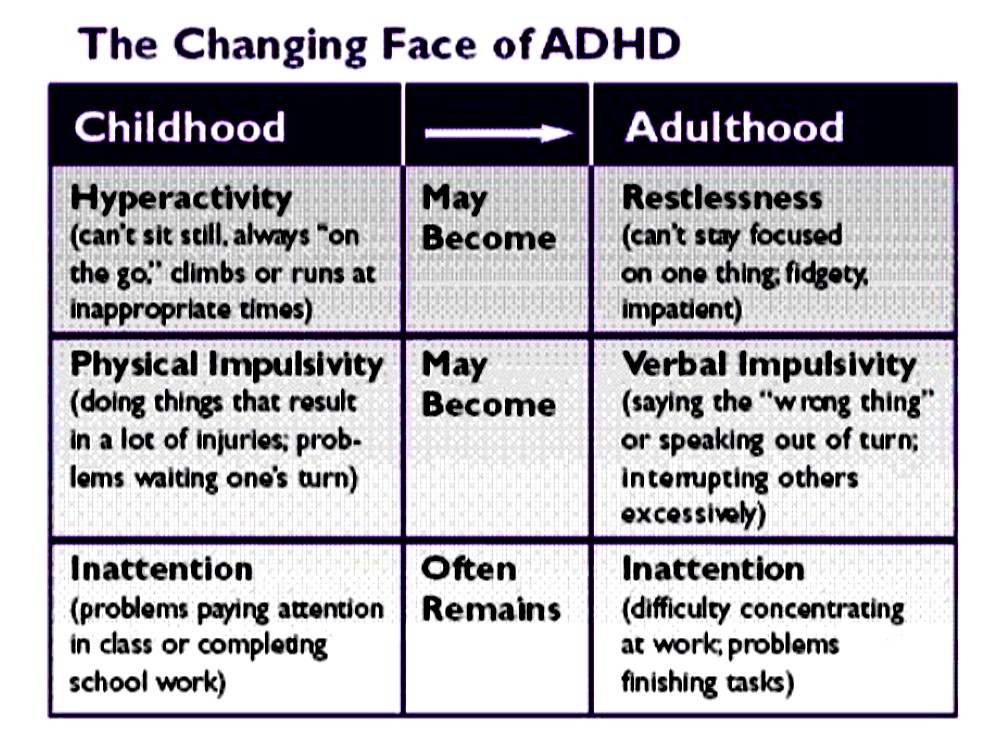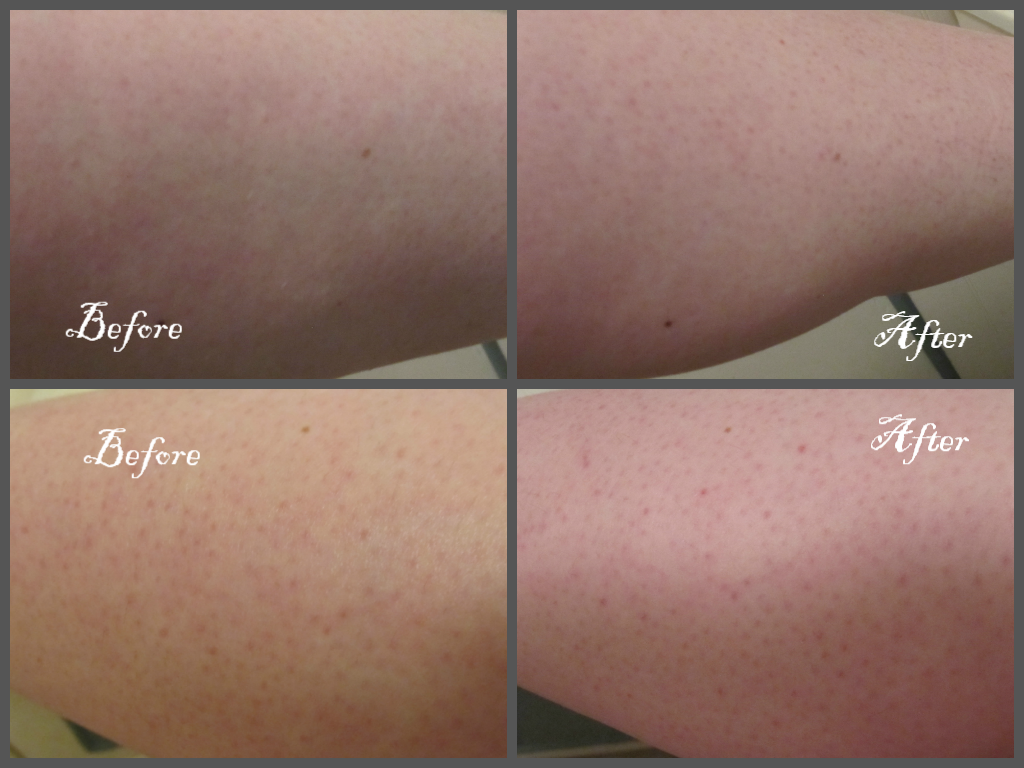Newborn bag for hospital
Hospital Bag Checklist: What You Need 2023
Photo: iStockphoto
Here are all the must-haves (and some nice-to-haves) that should be on your hospital bag checklist for the hospital or birthing center. This list is a good starting point, but every hospital and birth center does things differently, so ask ahead of time what they will supply and what you need to bring from home. Make sure you check out our newborn checklist as you near your due date to prepare for baby, too.
And, if you don't have an Amazon Baby Registry yet, be sure to sign up for free samples and discounts on several of the items below.
What to pack in a hospital bag: for you
What you pack in your hospital bag goes far beyond your cell phone and a handful of hair ties (yes, you'll need those!), which is why it's so important to make a hospital bag checklist that's both for you and baby. Flip-flops, lip balm, a pillow from home and nursing tops are usual suspects to bring to the hospital or birthing center, but we also included a bunch of other incredibly useful items.
Trust us, we've been through this—you'll want to pack all these items in your hospital bag so you have a comfortable experience and something to wear home.
- Slipper socks: These are likely the most under-rated hospital bag checklist item of all. You won't have the time or energy for real shoes, but you certainly don't want to slip on tile floors. We love these fuzzy, non-slip hospital socks. They're affordable enough to lose, too.
- Robe, nightgowns or pajamas that can unbutton for breastfeeding: These hospital nursing gowns give your bump plenty of space and make nursing a breeze after delivery.
- Nursing bras: Go for a larger size than you might normally wear. When your milk comes in, you'll be a full one to two cups larger than usual. This four-pack of crossover nursing bras is so comfortable that new moms swear they can "fall asleep" wearing them.
- High-waist underwear with mild compression: This stretchy c-section recovery underwear is perfect for the weeks after you've had surgery, but also a wonder for vaginal births thanks to ample space for maxi pads.
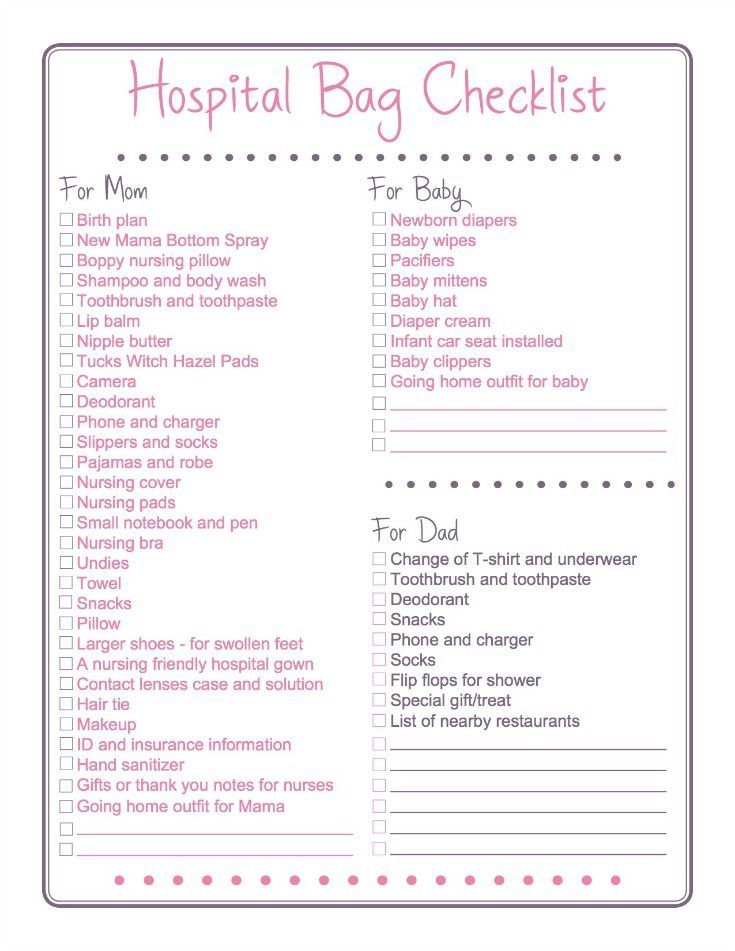 Yes, you'll need those as well.
Yes, you'll need those as well. - Loose, comfy clothes to wear home
- Toothpaste and toiletries
- Plenty of hair elastics: This multipack of ouchless hair elastics just may be the best $5 of your life
- If you plan to use the shower or Jacuzzi: a loose bra or top for you, swimwear for your partner
- Lip balm: Do not skimp on the lip balm! It's your new best friend. Order this all-natural, organic lip balm multipack so you have one in every pocket.
- Moisturizer: This is one of the bag checklist items for Mom that's often forgotten, but all that hand washing means plenty of dry skin.
- Your birth plan, paperwork and insurance
- Nursing pads: These organic, extra-large nursing pads are made of reusable and washable bamboo. Plus, they're incredibly affordable.
- Nipple cream: We like this easy-to-use Lansinoh Organic Nipple Balm.

- Maxi pads: They're big. They're long. But wow, you'll need 'em—these postpartum maxi pads are designed to hold a pretty gross amount of fluid, blood and even pee. Ah, motherhood.
- Phone chargers you don't mind losing: This three-pack of 10-foot iPhone cables is nearly as important as your doula. But only $10.
- Flip-flops for the shower
- Snacks and drinks
- Music, books or magazines, games, playing cards
- Notebook and pen
- Watch or smartphone with app to time contractions
kieferpix / Getty Images
What to pack in a hospital bag: For your baby
You probably already know you need a good rear-facing car seat, but you'll want to pack a few more baby-specific things to ensure a cozy and safe first few days in the world.
- A going-home outfit: These Gunamuna convertible footie pajamas are good for all genders, easy to wash and ultra-soft.
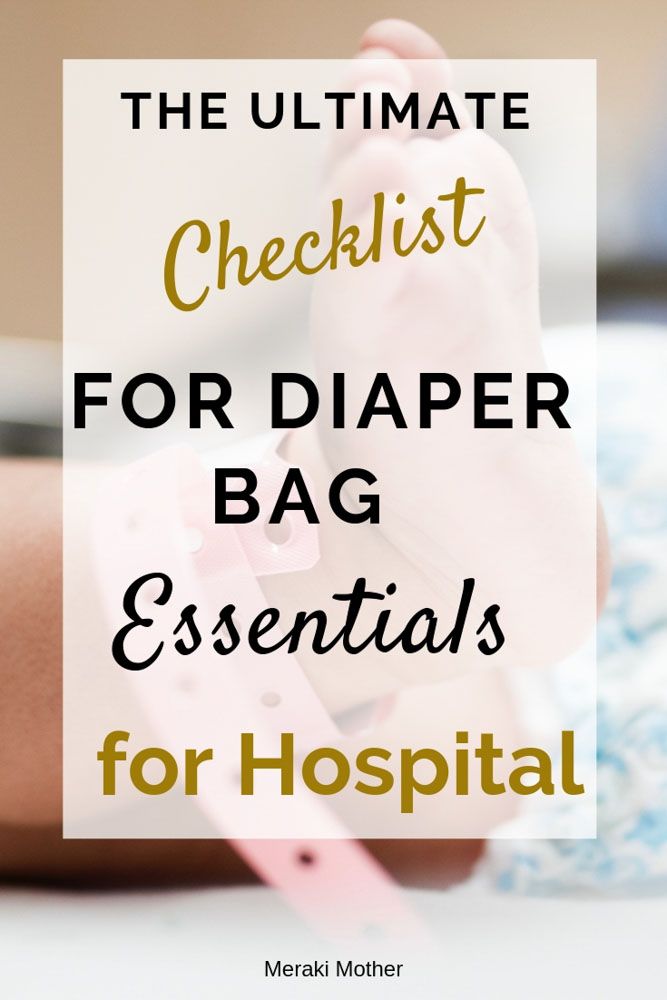
- Approved infant car seat with the base properly installed in your vehicle: Not sure where to start? This clever car seat model is an Amazon bestseller and works from newborn through toddler years.
- A few sleepers: These 100% cotton unisex sleepers are Today's Parent-approved.
- Simple onesies: This affordable pack of eight onesies will serve you well.
- Baby socks: Labor and delivery may offer you a single pair, but you'll likely need a few. Babies love to kick even outside the womb!
- A hat
- Cozy blanket and several receiving blankets
- Package of newborn/size small diapers
- Package of unscented baby wipes: Buy the big package! You'll use these bestselling unscented baby wipes for the next several years.
Get parenting news, expert advice, info on secret sales, discounts and the best-ever products.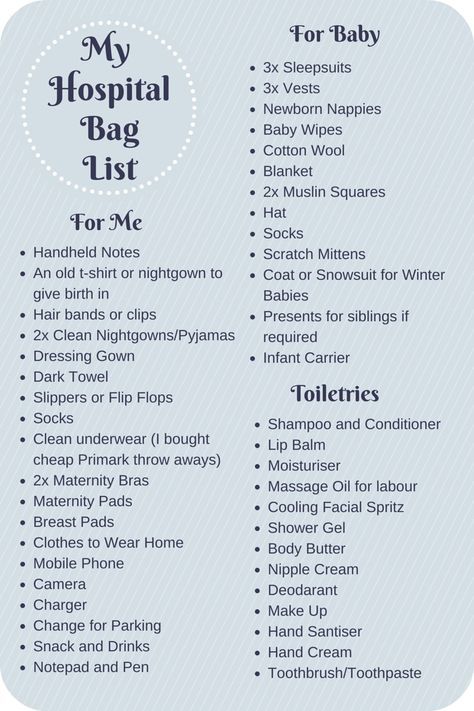 Sign up for the Today's Parent newsletter.
Sign up for the Today's Parent newsletter.
Every editorial product is independently selected, though we may be compensated or receive an affiliate commission if you buy something through our links. Ratings, images and prices are accurate and items are in stock at the time of publication.
This article was originally published on May 16, 2022
What to Expect During Labor
If you’re planning on a hospital birth, you’re in good company: over 98 percent of births in the U.S. happen in hospitals. Though every birth is different, it helps to know what to expect before it’s time to check in to the hospital.
Taking a Hospital Tour
Schedule a tour of the hospital where you plan to give birth a month or two in advance of your due date—most hospitals recommend you tour the facilities at around 32 weeks.
On the tour, a guide will show you where to park, where to check in and what the delivery rooms look like. They’ll also go over labor and delivery options available to you, and show you the recovery rooms.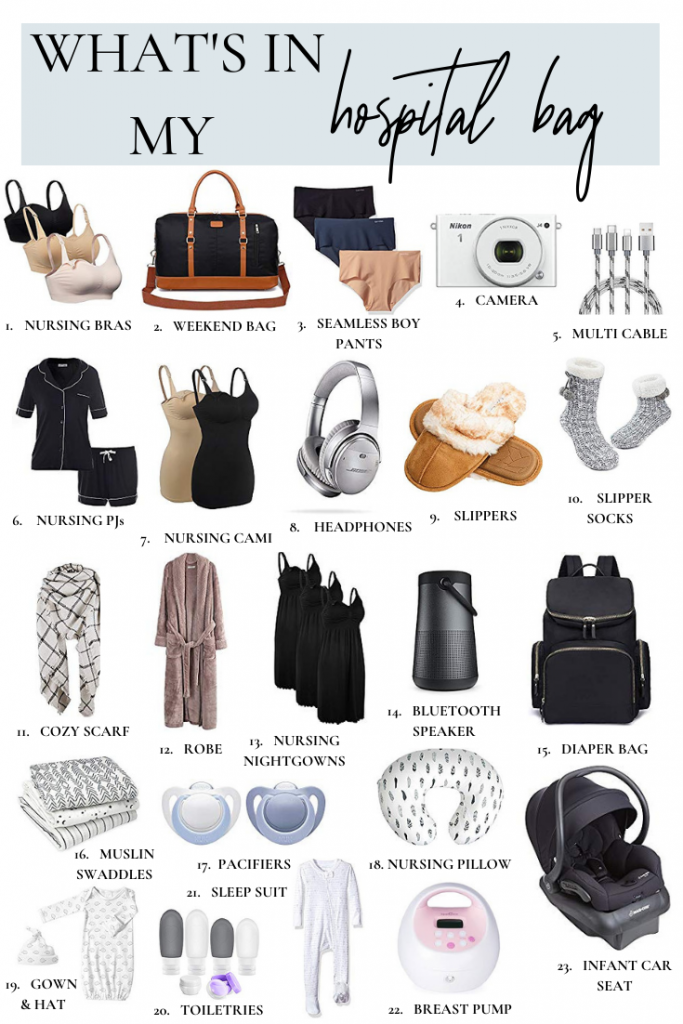 Don’t be afraid to ask questions, and if you have a birth plan, bring it with you (also remember to bring a copy when you check in to the hospital).
Don’t be afraid to ask questions, and if you have a birth plan, bring it with you (also remember to bring a copy when you check in to the hospital).
Checking into the Hospital for Birth
Chances are you’ll be in labor when you arrive at the hospital, though not if you have a scheduled induction or c-section. Luckily, hospital staff members are prepared for this, and the check-in process is usually quick. They’ll ask you for your name and insurance information, and they might also need your license plate number if the labor and delivery wing has a special parking lot.
Once you’re checked in, the nurse at the front desk will put a wristband on you and another nurse will escort you to a triage room (or to a labor and delivery room, if you have a scheduled delivery).
The Triage Room
If you’re in labor when you arrive at the hospital, your next stop after you check in will a labor and delivery triage room. A nurse will connect a fetal monitor to your belly to check your baby’s heart rate.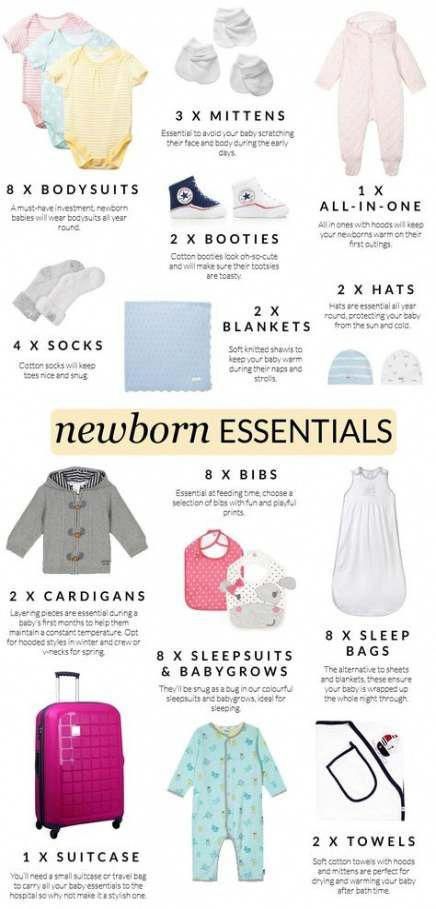 They will also monitor your contractions to see how far apart they are and check your cervix to see how dilated you are.
They will also monitor your contractions to see how far apart they are and check your cervix to see how dilated you are.
If your contractions are five minutes apart and one minute long for at least one hour, and your cervix is dilated three centimeters or more, you’ll most likely be admitted. But if labor is progressing slowly, you may be sent home at this point. Don’t worry—you’ll be back soon enough!
The Labor and Delivery Room
The labor and delivery room is where you’ll spend most of your time while in labor at the hospital. Depending on your birth plan and the options available to you, you might bounce on a yoga ball, take a shower or labor in a special tub as your contractions get closer together.
A nurse will monitor your labor and your baby’s heart rate, either once per hour or continuously. If you get an epidural, an anesthesiologist will go through that process with you and administer the epidural in the room.
Most hospitals allow you to have partners, midwives, doulas or family members in the room with you while you’re in labor if you choose, but they usually have a limit. Ask about this during your tour and keep the number in mind as you write your birth plan.
Ask about this during your tour and keep the number in mind as you write your birth plan.
And your family won’t be the only ones in the room with you—during your labor, you might encounter multiple labor and delivery nurses. They change shifts every eight to 12 hours, so the nurses you meet when you arrive might be different than the ones there when you give birth in the hospital.
What Happens in the Delivery Room
When the time comes, you’ll most likely give birth in the labor and delivery room (unless you have a c-section, in which case you’ll be moved to an operating room).
As you dilate to 10 centimeters and start to push, an OBGYN will join the labor and delivery nurses in the room to assist in the hospital delivery. This may or may not be the practitioner you’ve been seeing throughout your pregnancy, but rest assured that is totally normal.
If you’d like, ask your doctor or midwife about the other OBGYNs who work at the hospital beforehand. You may be able to meet them ahead of your delivery, which can help you feel more comfortable when the time comes.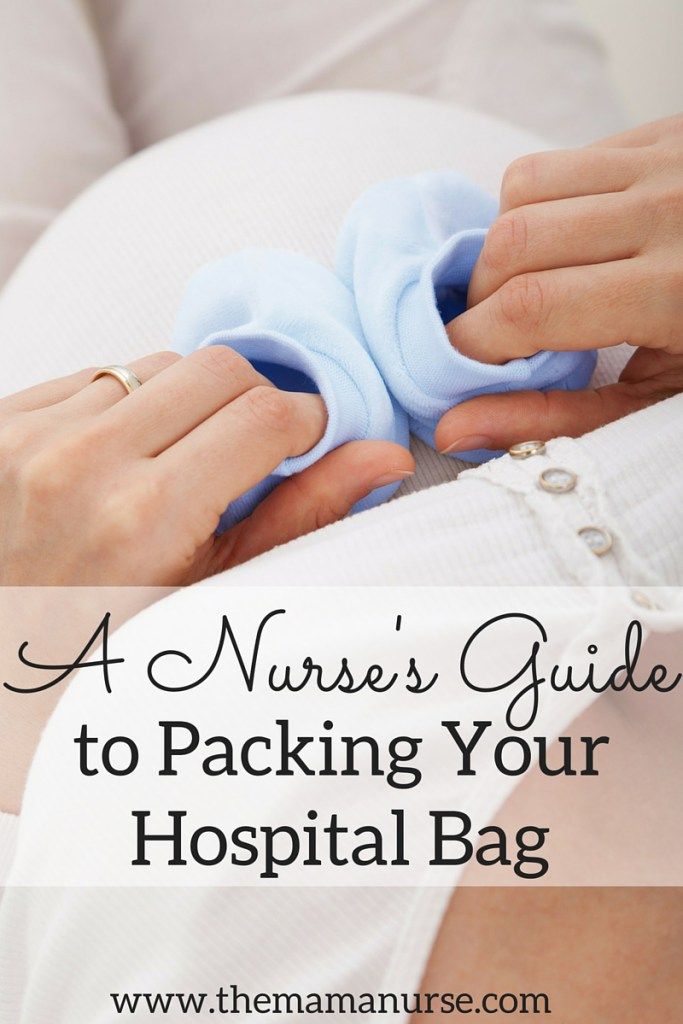
About Babylist
Looking for the best items for your growing family? Add all your favorite baby products to ONE registry with Babylist.
What Happens After You Give Birth
You did it! After the birth, a doctor or nurse may place your baby on your chest for some rest and bonding time. Then they’ll weigh and measure your baby, take some footprints and run some routine tests, such as a Vitamin K injection or eye ointment application (your doctor will go over these with you in advance).
They’ll also perform the APGAR score at one and five minutes after baby is born to assess how they tolerated the birth and then how they’re adapting to the world.
Here’s what is looked at:
- Appearance (skin color)
- Pulse (heart rate)
- Grimace (reflex irritability)
- Activity (muscle tone)
- Respiration (breathing effort)
Each one is scored on a scale of 0 to 2, with 2 being the best score.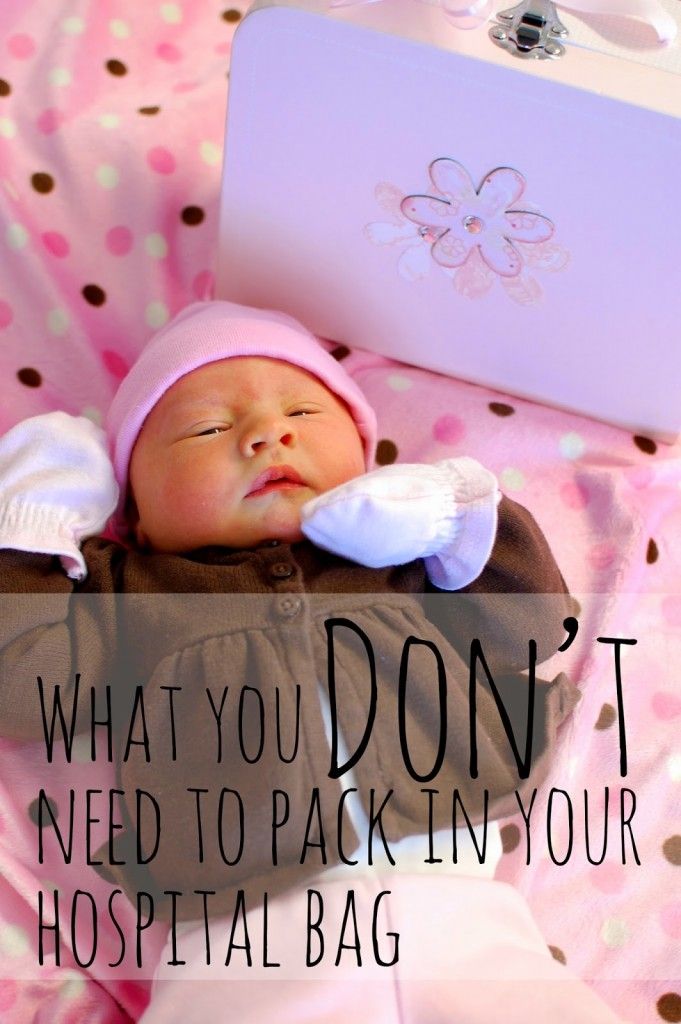
APGAR Score
| Score | 0 | 1 | 2 |
| Appearance | Entire body is blueish | Body good color; hands/feet blueish | Good color |
| Pulse | None | Fewer than 100 beats/minute | More than 100 beats/minute |
| Grimace | No reaction | Grimace | Cough and sneeze or cry when pinched |
| Activity | Limp | Some flexing of arms and legs | Active motion |
| Respiration | No cry | Weak or irregular cry | Strong cry |
After you deliver the placenta (this is typically known as the third stage of labor), you will also be monitored to make sure your blood pressure is steady and there aren’t any labor and delivery complications.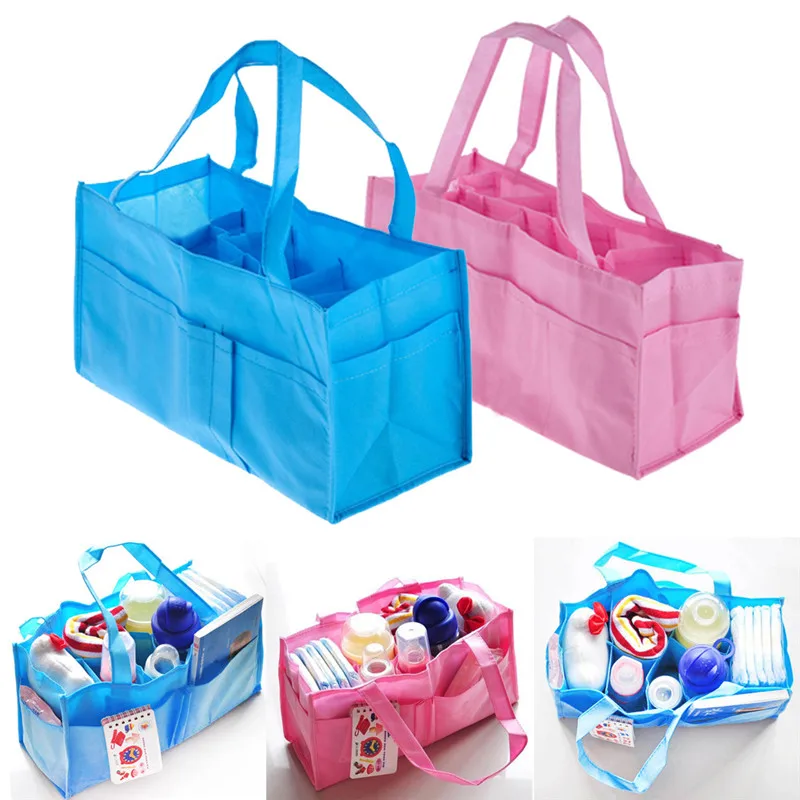 If you experienced any tearing during delivery, a doctor will stitch you up.
If you experienced any tearing during delivery, a doctor will stitch you up.
This recovery time in the labor and delivery room at the hospital varies depending on the birth, but it will probably be a couple of hours. Friends and family can visit you in this room (and meet your new baby!) as well, if you’d like.
What Happens in the Recovery Room
Once the nurses and doctor are sure that you and your baby are doing well and have had some time to rest, they’ll move you to a recovery room. This is where you’ll spend the next night or two (how long you spend in the hospital depends on your hospital and your birth). Nurses will come and check on you every few hours, refilling your water and making sure you have plenty of ice. A nurse will also help you use the bathroom for the first time after birth, especially if you had an epidural.
Your partner can stay in the room with you, usually on a cot, and the hospital will provide a bedside bassinet for your baby, if you’d like them to sleep in the room with you.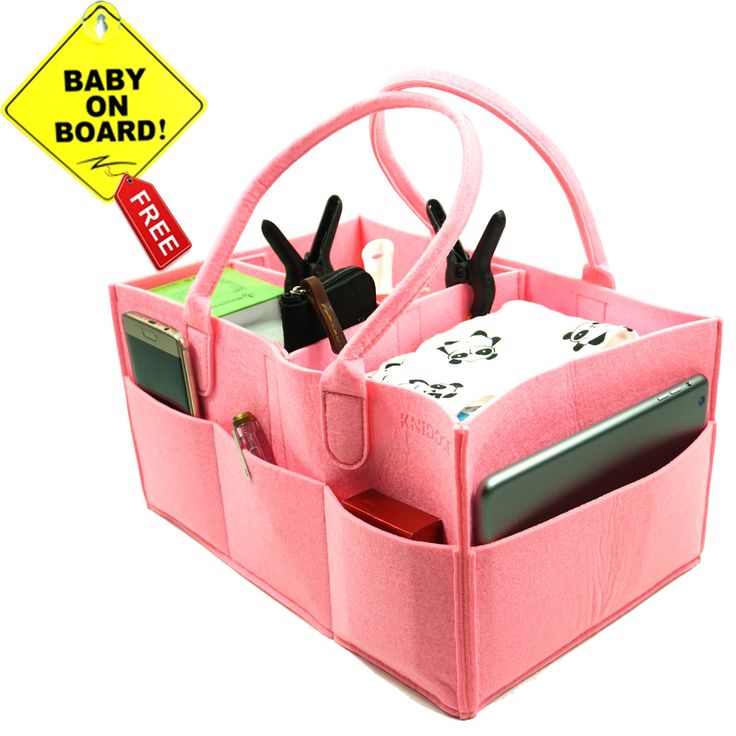 If your new baby has any older siblings, they usually can’t stay in the recovery room, but they can visit during hospital visiting hours.
If your new baby has any older siblings, they usually can’t stay in the recovery room, but they can visit during hospital visiting hours.
If you choose to breastfeed, you’ll get plenty of time to practice here and will probably meet with a hospital lactation consultant.
Checking Out of the Hospital after Birth
After a day or two of recovery at the hospital, it will be time to head home with your new baby. (You most likely will stay longer if you’ve had a c-section.) The nurses will give you both a final checkup and send you home with plenty of instructions (and probably some disposable mesh underwear).
Someone at the hospital will walk down to your car with you to see you out safely and make sure you have that car seat in there!
This information is provided for educational and entertainment purposes only. We do not accept any responsibility for any liability, loss or risk, personal or otherwise, incurred as a consequence, directly or indirectly, from any information or advice contained here. Babylist may earn compensation from affiliate links in this content. Learn more about how we write Babylist content and the Babylist Health Advisory Board.
Babylist may earn compensation from affiliate links in this content. Learn more about how we write Babylist content and the Babylist Health Advisory Board.
Bag to the maternity hospital - a list of things for mom and baby
Catalog of maternity hospitals
Perinatal center MMCC Kommunarka - childbirth under the compulsory medical insurance policy
Everything about the new Perinatal Center in Kommunarka: conditions of stay, features, photo, address, phone.
Catalog of maternity hospitals
Perinatal center GKB №67 named after. L.A. Vorokhobov — childbirth under the MHI policy
Perinatal Center City Clinical Hospital No. 67 named after. L.A. Vorokhobova - reviews, doctors, registration for childbirth free of charge under compulsory medical insurance.
Catalog of maternity hospitals
Center for family planning and reproduction - childbirth free of charge under compulsory medical insurance
TsPSiR on Sevastopolskaya - about the center, reviews, doctors, an appointment for childbirth under the compulsory medical insurance policy.
Catalog of maternity hospitals Bauman - childbirth under the MHI policy
Perinatal Center of the City Clinical Hospital No. 29 named after N.E. Bauman on Hospital Square, 2. Registration for childbirth is free of charge under the compulsory medical insurance policy.
Catalog of maternity hospitals
O.M. Filatova - childbirth under the compulsory medical insurance policy
Maternity Hospital City Clinical Hospital No. 15 named after. O.M. Filatov on Vykhino, st. Veshnyakovskaya, d.
Catalog of maternity hospitals
Perinatal center GKB im. S.S. Yudina - childbirth under the MHI policy
Maternity hospital No. 7 GKB im. S.S. Yudina on Kolomensky passage, 4, building 2. Registration for childbirth is free of charge under the MHI policy.
Catalog of maternity hospitals
Maternity ward №2 A.K. Yeramishantseva (Maternity Hospital No. 40) - childbirth under the compulsory medical insurance policy
Maternity ward №2 GKB im.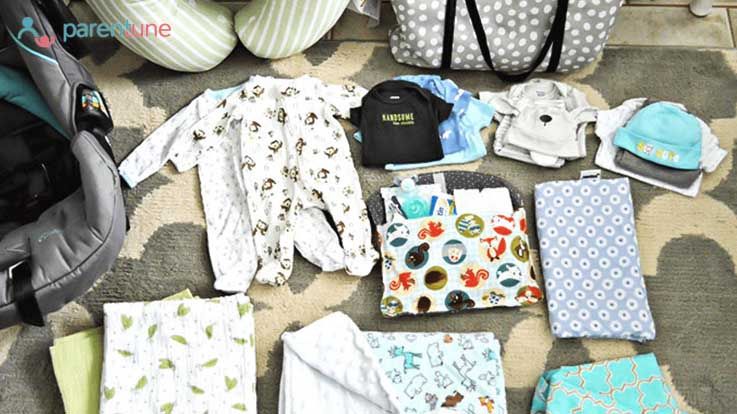 A.K. Eramishantseva (Maternity Hospital No. 40) on Taimyrskaya, 6. Registration for childbirth is free of charge under the compulsory medical insurance policy.
A.K. Eramishantseva (Maternity Hospital No. 40) on Taimyrskaya, 6. Registration for childbirth is free of charge under the compulsory medical insurance policy.
Catalog of maternity hospitals
Maternity ward No. 1 A.K. Yeramishantseva - childbirth under the policy of OMS
Maternity Ward No. 1 of the City Clinical Hospital named after. A.K. Yeramishantsev. Registration for childbirth is free of charge under the compulsory medical insurance policy.
Catalog of maternity hospitals
Maternity hospital №3 GKB №67 named after. L.A. Vorokhobova (previously RD No. 3 TsPSiR Branch No. 4) - childbirth under the MHI policy
Maternity hospital No. 3 GKB No. 67 named after. L.A. Vorokhobov on Nezhinskaya, 3 (formerly RD No. 3 TsPSiR Branch No. 4). Registration for childbirth is free of charge under the compulsory medical insurance policy.
Catalog of maternity hospitals
Maternity hospital No. 52 - childbirth under the compulsory medical insurance policy
Maternity hospital No.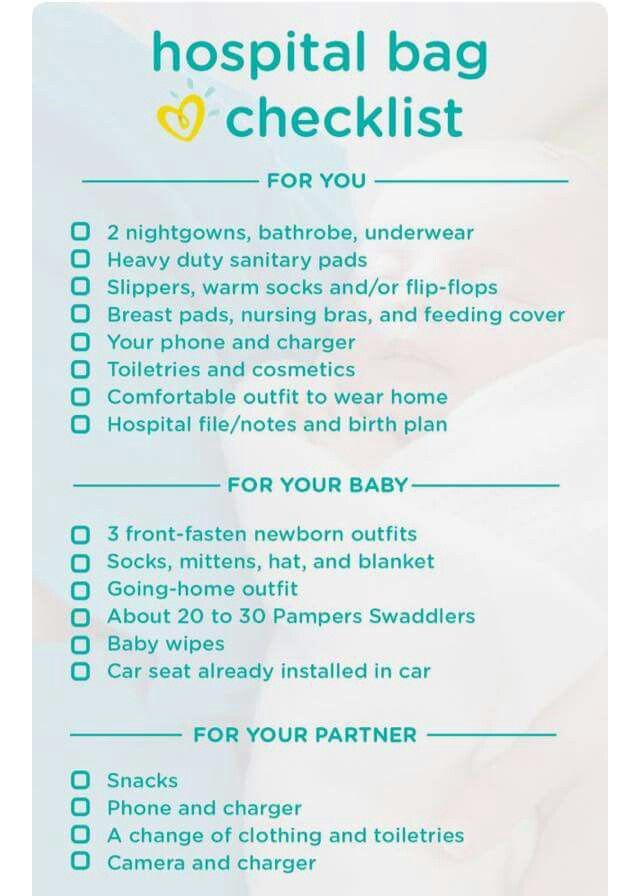 26 at the city clinical hospital No. 52 on Sosnovaya, 11. Registration for childbirth is free of charge under the compulsory medical insurance policy.
26 at the city clinical hospital No. 52 on Sosnovaya, 11. Registration for childbirth is free of charge under the compulsory medical insurance policy.
Catalog of maternity hospitals
Perinatal center GKB im. M.P. Konchalovsky - childbirth under the policy of compulsory medical insurance
Perinatal Center of the City Clinical Hospital named after. M.P. Konchalovsky in Zelenograd. Registration for childbirth is free of charge under the compulsory medical insurance policy.
Catalog of maternity hospitals
Maternity hospital №2 GKB im. F. I. Inozemtseva (formerly maternity hospital No. 20 of the D. D. Pletnev City Clinical Hospital) - childbirth under the compulsory medical insurance policy
Maternity hospital No. 2 GKB im. F.I. Inozemtseva (formerly the Maternity Hospital No. 20 of the Pletnev City Clinical Hospital) on Verkhnaya Pervomaiskaya, 57. Registration for childbirth is free of charge under the CHI policy.
Catalog of maternity hospitals
F. I. Inozemtseva — childbirth under the compulsory medical insurance policy
I. Inozemtseva — childbirth under the compulsory medical insurance policy
Maternity hospital No. 36 GKB im. F.I. Inozemtseva on Fortunatovskaya, 1, bldg. 2. Registration for childbirth is free of charge under the CHI policy.
Catalog of maternity hospitals
Maternity hospital №4 GKB im. V.V. Vinogradova - childbirth under the MHI policy
Maternity hospital No. 4 GKB im. V.V. Vinogradova on the street. Novatorov, d. 3. Registration for childbirth is free of charge under the compulsory medical insurance policy.
Catalog of maternity hospitals
Maternity hospital GKB im. V.V. Veresaeva - childbirth under the policy of compulsory medical insurance
Maternity hospital No. 17 GKB im. V.V. Veresaeva on the 800th anniversary of Moscow, house 22. Registration for childbirth is free of charge under the compulsory medical insurance policy.
Catalog of maternity hospitals
Maternity hospital №27 V.V. Veresaeva (formerly RD No.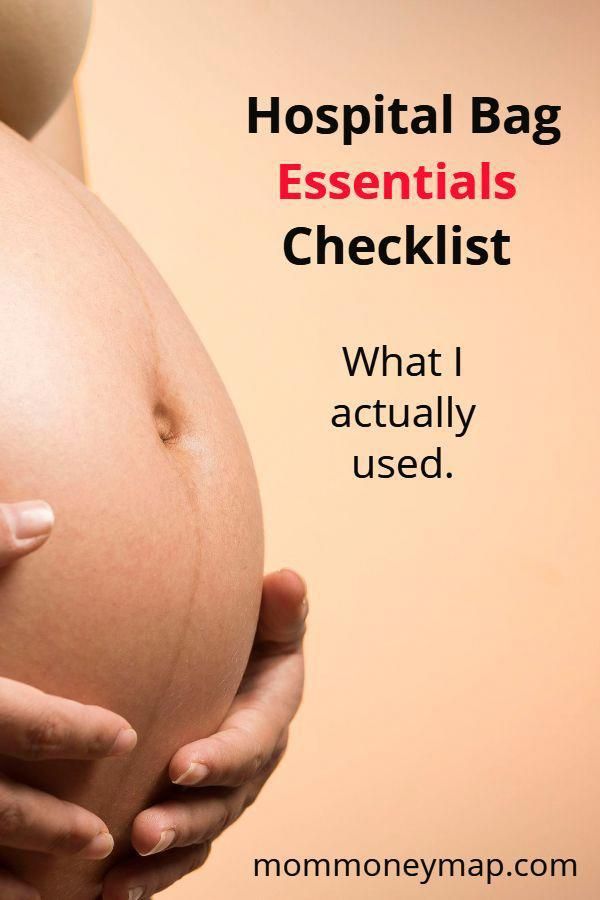 27 GKB named after S. I. Spasokukotsky) - childbirth under the policy of compulsory medical insurance
27 GKB named after S. I. Spasokukotsky) - childbirth under the policy of compulsory medical insurance
Maternity hospital No. 27 (formerly GKB named after S. I. Spasokukotsky) - about the maternity hospital, reviews, doctors, an appointment for childbirth free of charge under the policy OMS.
Catalog of maternity hospitals
Maternity hospital No. 8 City clinical hospital No. 15 named after. O.M. Filatov (formerly Maternity Hospital No. 8 City Clinical Hospital named after V.P. Demikhov)
Maternity Hospital No. 8 City Clinical Hospital No. 15 named after. O.M. Filatov on Samarkand Boulevard, 3. Registration for childbirth is free of charge under the MHI policy.
WHAT TO BRING WITH YOU TO THE Maternity Hospital WHEN ADMISSIONS FOR BIRTH
What should be the bag in the maternity hospital? The main requirement 一 is that the bag must be washable. From a cloth bag or suitcase, you will be asked to transfer things to bags or transparent plastic bags.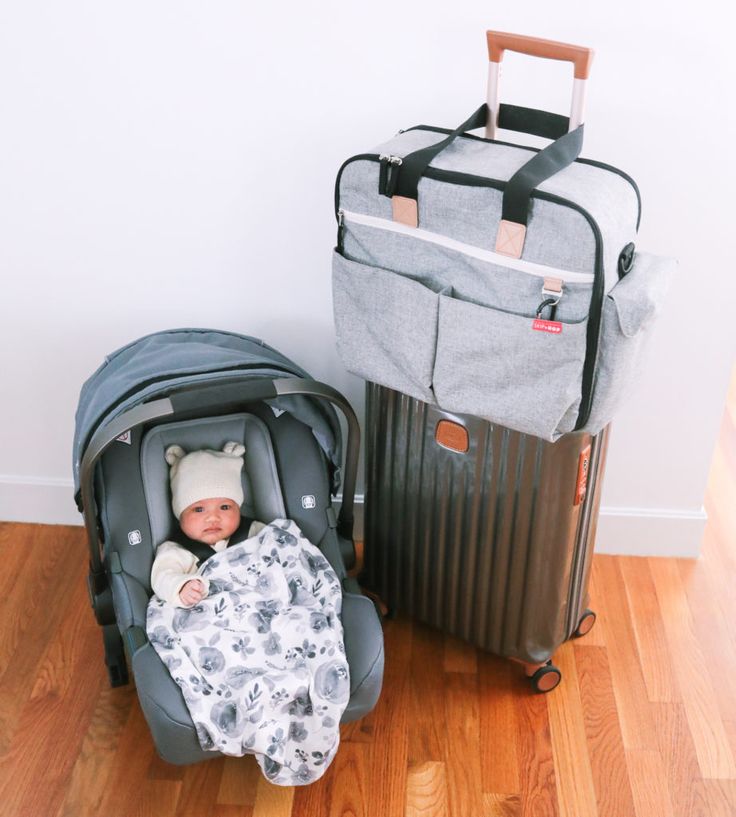 At the onset of labor or the outflow of amniotic fluid, a list of what to take with you to childbirth should be prepared in advance. These are the following documents:
At the onset of labor or the outflow of amniotic fluid, a list of what to take with you to childbirth should be prepared in advance. These are the following documents:
- exchange card (the main document of a pregnant woman)
- passport, compulsory medical insurance policy, SNILS (if available)
- birth certificate (provided that it was issued to you by the LCD),
- medical documentation not included in the exchange card (ultrasound data, consultations of other specialists, extracts, etc.).
You can take with you to the hospital when you are admitted to the maternity ward:
- washable slippers
- mobile phone with charger
- compression hosiery
- 2 caps and 2 pairs of socks for a newborn
- bottle of still water (500 ml)
All medical care in the maternity hospital is provided free of charge according to the medical and economic standards (MES) of Moscow. There is no need to come to the maternity hospital in advance before the start of labor activity in the absence of indications.
Scheduled hospitalization in the maternity hospital is carried out if there are indications in the direction of the doctor of the antenatal clinic.
Emergency hospitalization is carried out in the presence of emergency indications by the ambulance team (AMB), or when self-treatment with complaints to the emergency room of the obstetric and gynecological center.
Post-natal items You must bring after delivery, when you are transferred to the post-natal unit.
List of things for the mother and newborn in the postpartum department and for discharge.
The postpartum department of our maternity hospital provides the most necessary for the mother and her child. After childbirth, relatives and friends can give you the following things in a bag or in a light small bag made of polymer materials to the postpartum department:
- disposable underpants - 1 pack
- postnatal pads - 1 pack
- small cotton body towel
- soap, toothbrush and toothpaste section)
List for the baby in the postpartum ward:
- diapers - 1 pack (from 2 to 5 kg)
- wet wipes
- baby soap or gel
- diaper protective cream
If the child is discharged during the summer, depending on the air temperature outside, the child will need a vest, a bodysuit, a hat, a light blanket.